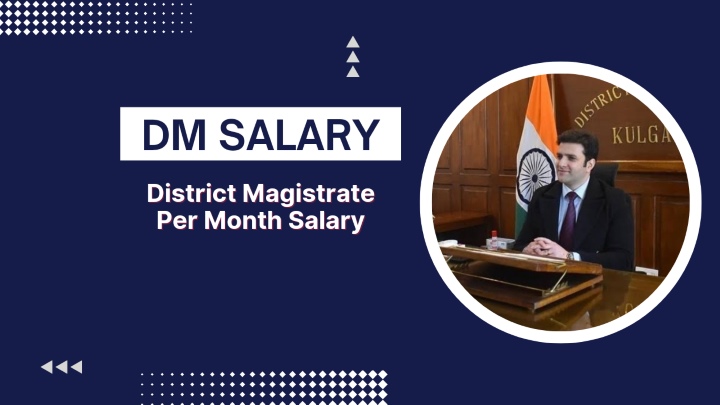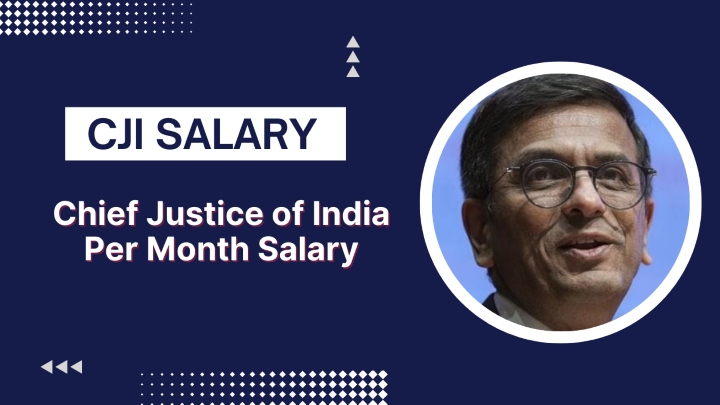
DIG stands for Deputy Inspector General. Based on the roles and responsibilities of a police, there are several departments and rankings. One such higher ranking is that of DIG, Deputy Inspector General of Police. In general, the department is entrusted with the administration of laws of a nation. They are expected to uphold the democracy, unity and integrity of the nation. In this article, we are going to discuss various details about the department of DIG, their roles and responsibilities, salary and how one can become a part of the department.
Table of Contents
DIG Salary per Month in India
DIG salary per month in India is between ₹1,31,100 to ₹2,16,600. Apart from the salary, there are several perks and benefits enjoyed by the post. The pay scale of a DIG generally depends on several factors such as location, experience and skills. According to the 7th Pay Commission, the basic salary of a DIG generally ranges from around ₹78,800 to ₹2,09,200 per month. The pay scales are regulated by the Central Government.
DIG Salary as per the 7th pay commission
As per the 7th Pay Commission, the basic salary of a DIG ranges from ₹78,800 to ₹2,09,200 per month. However, several factors like location, experience, talents , seniority and skills also play an important role in determining the salary.
| Deputy Inspector General of Police (DIG) Salary Structure as per the 7th Pay Commission | |
| Category | Salary of DIG |
| Pay Scale | ₹1,31,100 to ₹2,16,600 per month. |
| Basic Salary of DIG | ₹1,31,100 |
| Dearness Allowance (DA) | ₹ 65,550 (50% of basic pay) |
| House Rent Allowance (HRA) | from ₹ 10,488 to ₹ 31,464 based on location (8%-24% of basic pay) |
| Transport Allowance (TA) | ₹ 7000 to ₹ 15,000 per month |
| In Hand DIG Salary | ₹ 2,14,138 per month (approx) |
| Maximum Salary of DIG (Without Any Promotion) | ₹2,16,600 per month. |
DIG Salary as per the Old 6th pay Commission
As per the 6th Pay Commission, the salary was comparatively lower than the 7tg Pay Commission. The pay scale of a DIG under the 6th Pay Commission typically ranged from ₹15,600 to ₹39,100 per month, with grade pay.
| Deputy Inspector General of Police (DIG) Salary Structure as per the 6th Pay Commission | |
| Category | Salary of DIG |
| Pay Scale | ₹15,600 to ₹39,100 per month. |
| Basic Salary of DIG | ₹15,600 |
| Dearness Allowance (DA) | ₹ 1560 (10% of basic pay) |
| House Rent Allowance (HRA) | from ₹ 1560 to ₹ 4680 based on location (10% to 30% of the basic pay) |
| Transport Allowance (TA) | ₹ 3200 per month |
| Maximum Salary of DIG (Without Any Promotion) | ₹39,100 per month. |
Roles and Responsibilities of a DIG
Although the specific roles and responsibilities of a Deputy Inspector General of Police varies according to the nation and state, there are some general duties which they are expected to fulfill. Some of the common roles and duties of a DIG is as follows :
- They review and supervise the tasks performed by other police officials.
- They are responsible for maintaining efficiency and fairness among the various departments of the police.
- They are entrusted with planning and decision-making processes
- They plan, review and audit the tasks and operations exercised by the various departments of police.
- They report to the Inspector General (IG) and act as per the instructions given by them.
- They are the representative of the Inspector General in situations where the Inspector General is absent.
- They are responsible for solving cases, maintaining order within their competence as they generally have a greater degree of control compared to the SP.
- They often take control over cases that are beyond the powers associated with the SP.
- They guide the sub-inspectors through the training process until they are appointed.
- They assign duties to constables
- They communicate closely with Superintendents and District Magistrates
- They are also responsible for transferring the officials who belong to comparatively lower posts.
- They have the power to make changes in the system. Those changes might be temporary and can be valid for a year.
- As per their field of investigation is concerned, their primary tasks revolve around investigation of criminal offenses, drug trafficking, prevention of smuggling, policing borders and so on
Ranking of a DIG
In terms of rank within the police department, the Deputy Inspector General of Police occupies the fourth- highest position. IPS officers who were promoted after effectively serving as Senior Superintendent of Police or Deputy Police Commissioner are the ones who actually hold the esteemed post of DGI. The power to control the Superintendent of Police lies in the hands of the DIG. Besides, DIG can also exercise control over other posts like the Additional Superintendent of Police, Sub-inspector, Assistant Superintendent of Police and many more.
How to Become a Deputy Inspector General of Police(DIG)
For becoming a Deputy Inspector General of Police, you should be dedicated towards the administration system of the country and curious about the department of police. Since DIG is a high post, one needs to first get into the department of police and for becoming a police officer to enter the department of police, one needs to appear for the National Civil Services Exam and clear it. The National Civil Services Exam is conducted by the Union Public Service Commission (UPSC) for the ones interested in becoming an IPS officer. Once a candidate clears the exam, they are given necessary training by the desired police department. The candidate undergoes training and clears training tests to finally get selected as an IPS officer.
As a newbie, they first join the department as Assistant Commissioner of Police (ACP) or Assistant Superintendent of Police (ASP). Gradually, the individual has to prove their efficiency over time and again to be promoted. Through several tests of skills, performance, experience, dedication and talent, the officer gets promoted to the post of SP ( Superintendent of Police), followed by Senior Superintendent of Police ( SSP). The SSP will later get promoted to hold the prestigious position of a Deputy Inspector General of Police. To obtain the position of a DIG, it will take a duration of around 10-12 years. Another existing way to secure the position of DIG is to carefully review the IPS training modules, secure a rank or position either as an ACP or an ASP and then finally working the way up to SP and followed by SSP, one can finally be a DIG based on their skills and experience gained through the cases solved by them.
Eligibility Criteria for DIG

Candidates who aspire to become a Deputy Inspector General of Police should carefully review and go through the eligibility criteria for the same. The most important factor that makes a candidate eligible for the post is their nationality. Besides nationality, educational qualification definitely plays a huge role in deciding the eligibility of a candidate
Nationality
- The candidate must be a citizen of India. They might also be citizens of Nepal and Bhutan, or a Tibetan refugee who came to India with the intent to settle permanently in the country.
- The candidate is a Pakistani, Burmese, Sri Lankan, or East African migrant with Indian origins who came to India with the intent to settle permanently in the country.
Educational qualification
Candidates who will appear for the UPSC Civil Service Exam must satisfy either of the following educational qualifications mentioned below:
- The candidate must have a valid Bachelor’s degree from a recognized university OR
- The candidate must have completed or is appearing for the final semester exams of the course they are enrolled in (valid proof must be provided for verifying the seat for the exam) OR
- Candidates must have completed a bachelor’s degree in the field of technology that is recognized by the Government of India OR
- Candidates must have cleared the exam for the final semester of the MBBS course.
Thus, the basic eligibility criteria as per as educational qualifications are considered includes appearing for the UPSC and clearing it.



